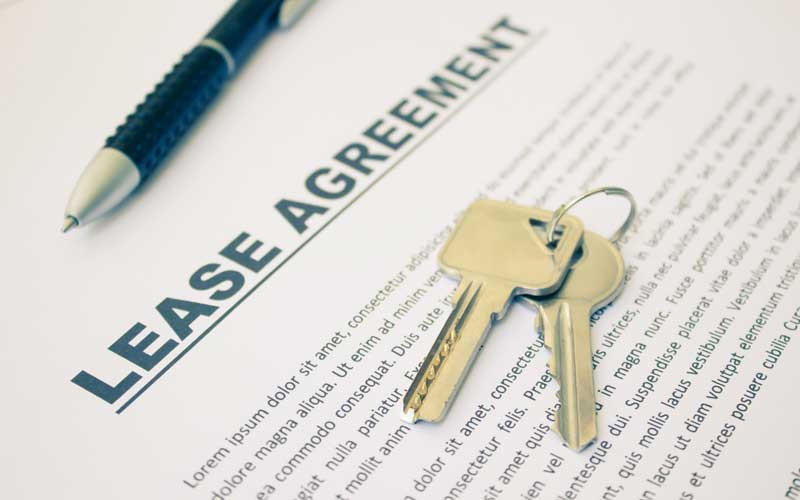
Last week, I discussed about the process of acquiring an immovable property — and just in case you want to rent it out?
There are a number of things to consider when planning to rent out your immovable property. The most important aspect is that you need to come up with a formal and structured lease. This can only be achieved when the lease agreement is reduced to writing.
For the convenience of the readers, I have put the issues to look at in point form.
The lease agreement must be in writing.
Whilst the law in Zimbabwe does not require contracts to be in writing, it is useful and pragmatic to put the residential lease in writing. The good thing with putting an agreement in writing is that it will be an easy reference point whenever an issue arises, secondly a written contract is clear evidence of what parties agreed to. In the event of breach of terms of the lease agreement, the house owner can easily prove even in court what the parties agreed to.
Important issues to consider in leases
A well-drafted rental lease between you and any tenant — even a friend or family member — can end up saving you money and stress later on. The agreement should ideally include problem issues like payment due dates, who pays council bills, whether the bills paid include rates as well, who is responsible for repairs to the structure or fittings to which repairs, among others.
It is advisable to give a shorter lease term for a start to enable the owner to determine if the tenant has the ability to pay rentals and adheres to lease terms. The agreement, for instance, may give an initial 6-month period, then renew for year, then further renew for two or more years.
- Mavhunga puts DeMbare into Chibuku quarterfinals
- Bulls to charge into Zimbabwe gold stocks
- Ndiraya concerned as goals dry up
- Letters: How solar power is transforming African farms
Keep Reading
A house owner should as much as possible ensure that the residential lease agreement does not expire leaving the tenant still occupying the property. This situation may result in the tenant becoming a statutory tenant. A statutory tenant is a tenant who continues to occupy a property paying rentals after the lease has expired.
The challenge with a statutory tenancy is that you may not evict this tenant for any other reason from the house except that you prove you need to use your property. In order to evict, you have to be approved the Rent Board.
Clarify rental terms and security deposit provisions
The lease agreement must clearly set out payment expectations including:
- The due date for rent
- Frequency of payment
- Form of payment
- Place of payment
- Penalties or fees for late or missed payments
The agreement must also be clear on the amount of security deposit required upon taking occupation of the property. Depending on the condition of the property and agreement of the parties, an agreement may require a security deposit much more than a month’s rental. A security deposit as name suggests, is a deposit to secure the lessor’s property in case it is damages by tenant. It must always be put in mind that there are a number of tenants who damage property and elope from the property secretly, thus causing financial loss to the property owner. As such, be clear about your security deposit as well as what will be considered as damages to your property.
Screen your tenants for suitability
Before you finalise the lease, screen your potential tenants to make sure they can actually pay the rental. This should be done through completion of forms by all interested persons supplying personal details, income status, next of kin, etcetera, so that you do background and credit checks, and follow up with given references.
Failure to do these checks may lead to many problems later, including none or late rent payments and damage to your property. To cater for the cost of these small credit checks, you may want to charge a small application fee to cover the expense of conducting the checks.
Stated terms on subletting, pets, and other activities
It is useful for the property owner to clarify position on subletting, pets, and other conduct you won’t tolerate. Once this is clear in a lease signed by the tenant, he or she can’t later claim ignorance of the rules.
Penalties for breaching the lease terms
The lease must provide for what happens when the tenant breaks the terms of the lease agreement. Will you require the tenant to pay rentals until you find a new tenant? Are there other penalties for breaking the lease? The agreement must also explain what happens when the tenant breaches the lease in some way? Do you want to reserve the right to terminate the lease? It is a good practice even to provide that should the tenant defaults or misses the due date for payment of rentals, interest will be charged daily or monthly at a given rate, say US$ per each day in default.
Get all terms right from start
As part of “Know Your Tenant Checks”, ensure that you collect all the information from your prospective tenant as you can. Ideally, get all information about where you will get them when they have left your premises. In pursuit of this goal, record in the agreement information on next of kin, place of work details, if possible, of church of worship, if any, contact numbers for parents, etcetera. This might seem like getting too much information but it will help on the day of need.
No matter what terms you set, you can’t enforce them without a written document. It is not enough to find a compliant tenant and begin collecting rent. The best foundation is that you do screening of your tenants, verify their details and references independently, and after all that you then put your agreement in writing and get it signed by all parties.
This article is meant for informational purposes, and not structured as legal advice. Should you need specific legal advise please contact us or other professionals.
Majachani is an attorney with Alex F and Associates Attorneys, he can be contacted on alexf.attorneys@gmail.com or 0712553454










